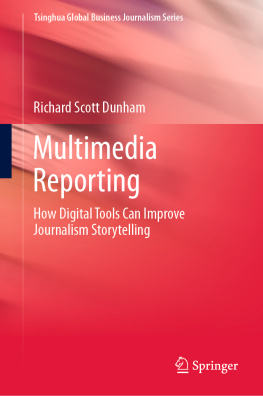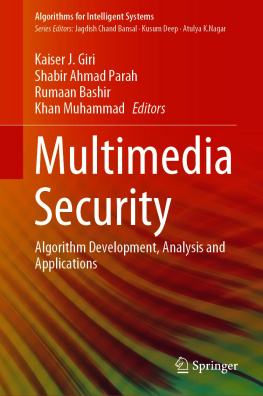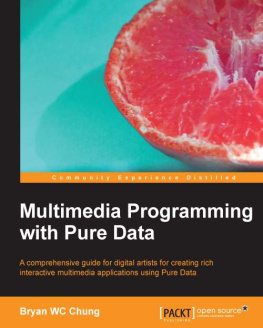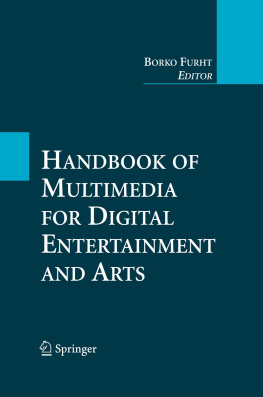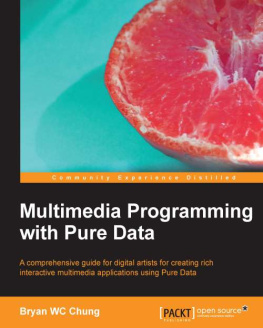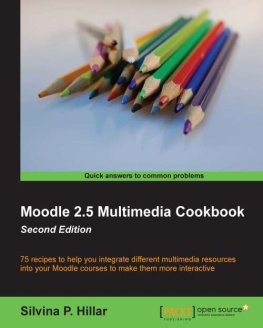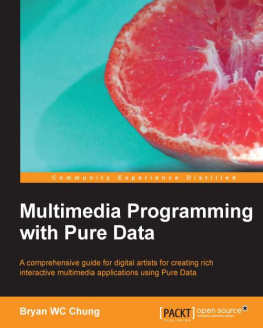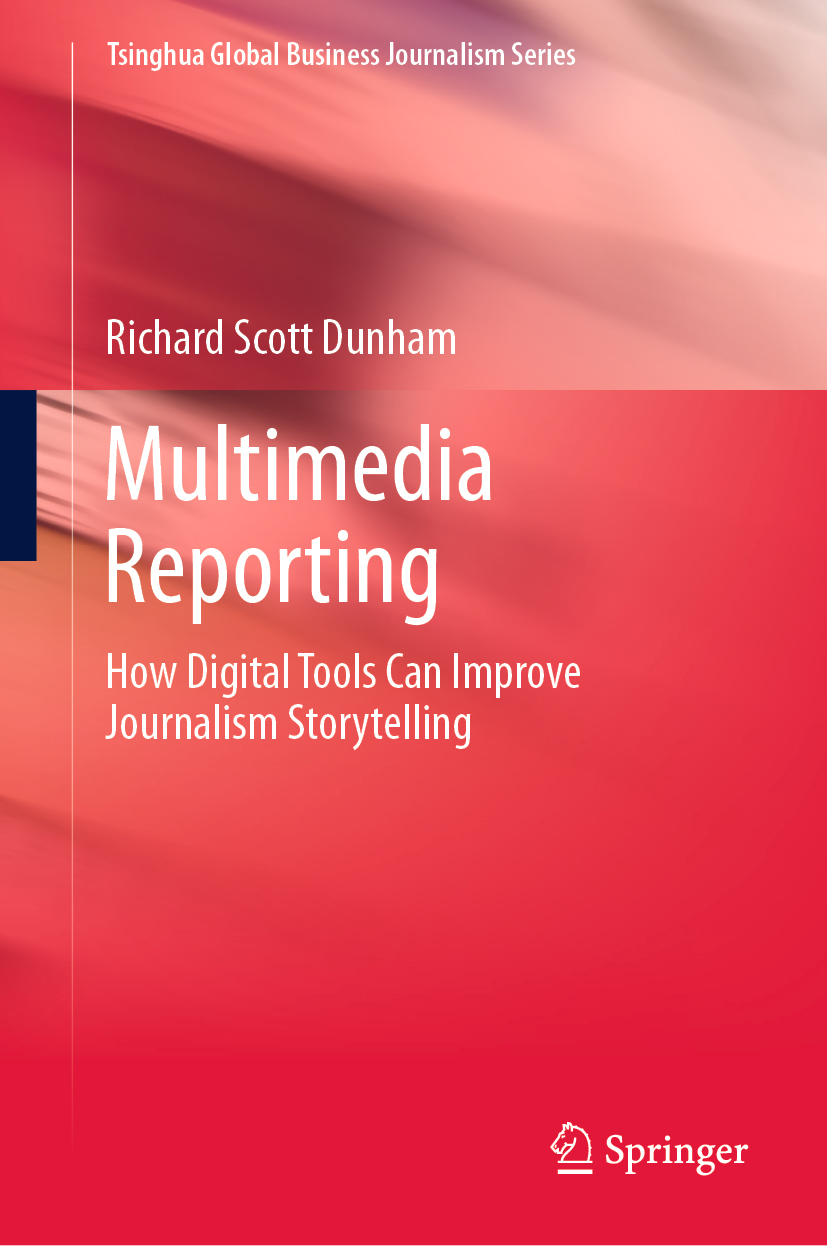Tsinghua Global Business Journalism Series
Series Editors
Min Hang
Tsinghua University, Beijing, China
Richard Scott Dunham
Tsinghua University, Beijing, China
This book series aims to provide up-to-date knowledge on business journalism education and practices. It harnesses the expertise of both eminent business journalism academics and highly skilled and experienced journalism practitioners from China and the rest of the world to provide an in-depth look at Chinas rapidly evolving economy and the impact that Chinas economic slowdown could have on the global economy. This book series offers invaluable knowledge of the subject matter from some of the worlds leading experts, as well as practical knowledge of the skills needed to most effectively communicate about the Chinese economy on various multimedia platforms.
More information about this series at http://www.springer.com/series/15842
Richard Scott Dunham
Multimedia Reporting How Digital Tools Can Improve Journalism Storytelling
Richard Scott Dunham
Tsinghua University, Beijing, China
ISSN 2522-0942 e-ISSN 2522-0950
Tsinghua Global Business Journalism Series
ISBN 978-981-13-6162-3 e-ISBN 978-981-13-6163-0
https://doi.org/10.1007/978-981-13-6163-0
Springer Nature Singapore Pte Ltd. 2020
This work is subject to copyright. All rights are reserved by the Publisher, whether the whole or part of the material is concerned, specifically the rights of translation, reprinting, reuse of illustrations, recitation, broadcasting, reproduction on microfilms or in any other physical way, and transmission or information storage and retrieval, electronic adaptation, computer software, or by similar or dissimilar methodology now known or hereafter developed.
The use of general descriptive names, registered names, trademarks, service marks, etc. in this publication does not imply, even in the absence of a specific statement, that such names are exempt from the relevant protective laws and regulations and therefore free for general use.
The publisher, the authors and the editors are safe to assume that the advice and information in this book are believed to be true and accurate at the date of publication. Neither the publisher nor the authors or the editors give a warranty, expressed or implied, with respect to the material contained herein or for any errors or omissions that may have been made. The publisher remains neutral with regard to jurisdictional claims in published maps and institutional affiliations.
This Springer imprint is published by the registered company Springer Nature Singapore Pte Ltd.
The registered company address is: 152 Beach Road, #21-01/04 Gateway East, Singapore 189721, Singapore
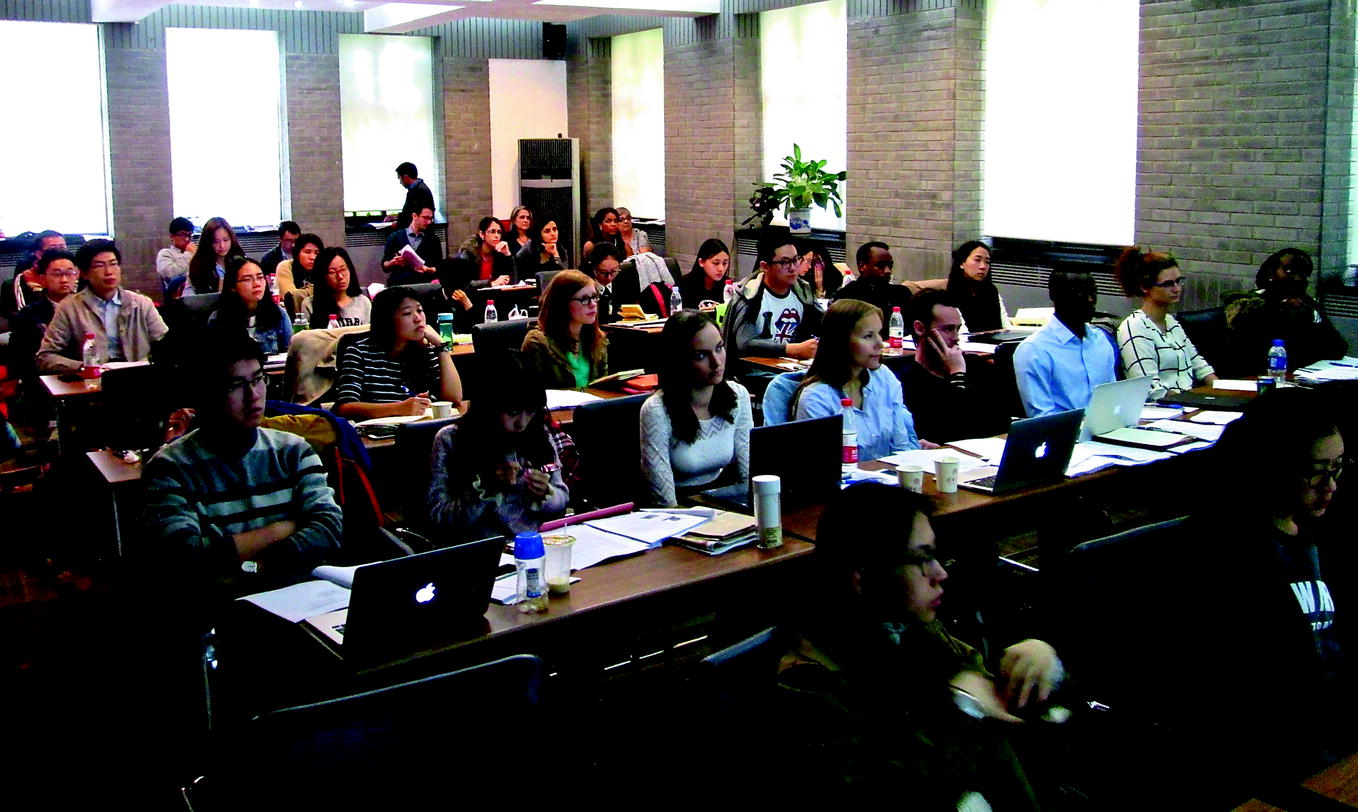
Acknowledgements
This textbook is the result of the hard work of dozens of people from Beijing to Washington. It was inspired by the material I covered in my lectures in the Multimedia Reporting course in the Global Business Journalism Program at Tsinghua University. The classroom material was a starting point, and has been supplemented by significant additional research by the author, assisted by Zhang Sihan, Li Chengzhang, Bertha Wang Xiaoyu, Shi Lin, Jiao Jie, Melody Yu Bokun, Julie Gao, Zhang Tiantian, and many other students, teaching assistants, friends, and colleagues.
This ambitious project is the result of the unshakable commitment to excellence in business journalism education by my partner at Tsinghua University, Global Business Journalism Program Co-Director Dr. Hang Min, the Associate Dean for International Affairs at the Tsinghua School of Journalism and Communication, and her predecessor as Associate Dean, Prof. Shi Anbin. It could not have been completed without the support of our GBJ partners, Tsinghua University, Bloomberg News, and the International Center for Journalists.
Thanks to my colleagues at Tsinghua, including Administrative Dean Chen Changfeng, International Administrator Rose Li Hongxia, and Academic Officer Sarah Ma Chengcheng, and my colleagues at the International Center for Journalists, particularly President Joyce Barnathan, Vice President of Programs Patrick Butler, and Vice President of Development Vjollca Shtylla. I would also like to thank GBJ Visiting Professors Jane Sasseen, Linda Austin, Doug Harbrecht, Marilyn Geewax, Susan Chandler, Joe Weber, Leslie Wayne, Margie Freaney, and Pamela Tobey, along with Guest Lecturers including Ching-Ching Ni, Eric Fish, Erica Pitzi, Hailey Branson-Potts, Mark Potts, Brian Bremner, Kelli Arena, Laura Stanton, Shakuntala Rao, Jeff South, Larry Price, Ken Herman, Sharon Jayson, Alan Bernstein, Matt Stiles, Elise Hu, Andrew Leckey, Cinzia Dal Zotto, Robert Picard, Tian Wei, Emily Rauhala, Nancy Snow, Richard Collins, David Lore, Patrick Casey, James Rosen, and the late Michael Shanahan. Special thanks to my predecessor as GBJ Co-Director, James Breiner, who helped ease me into academia and left me with a wealth of teaching material, some of which found its way into this book. And I could not have completed this book without my team of citizen editors, all of them talented journalists: Cheryl Arvidson, Larry Foster, Tina Stage Rafalovich, Sherie Winston, Tracee Evans, Doug Harbrecht, Maria Recio and Caroline Ward.
Finally, my wife Pamela Tobey has not only helped with this book by contributing graphics and professional advice, she has made it possible for me to pursue the opportunity to share my 35 years of journalism experience with students in China. I am forever grateful.
Beijing, China
May 2019
Richard Scott Dunham
Introduction
As the twenty-first century dawned, the iPad did not exist. Smartphones were the stuff of science fiction. Viral videos were related to the study of disease. Social media was a concept foreign to the masses and known only to a few technological geeks. There was no Facebook, no Twitter, no Instagram, no WeChat, no SnapChat, and no YouTube. Today, these ubiquitous tools of modern technology have revolutionized the way all of us get information and communicate with our fellow citizens, both personally and professionally.
In coming years, the technology of communication will continue to change. What will not change is the omnipresent reality of change. To thrive in this constantly shifting communications landscape, it is necessary to speak the language of change.
News organizations have to be in a constant state of reinvention, says Joyce Barnathan, President of the International Center for Journalists and former Executive Editor of Business Week. If you are not innovative, you are, frankly, dead. Youll be left in the dust in a minute.
Young journalists must be multilingual to be successful in todays rapidly changing journalism climate. But the languages they must learn are not traditional tongues such as English or French or Chinese. They are the languages of multimedia journalism. In this textbook, students will learn the new languages of journalism and how to use them to create multimedia journalism stories.
The new language of online journalism includes writing for digital platforms, writing blogs, and writing for social media. It includes a wide range of multimedia skills including video, audio, photos, graphics, data visualization, and animation. It includes 360-degree video, virtual reality, augmented reality, and artificial intelligence. Multimedia journalism allows a two-way communication with the audience that was not possible in the days of twentieth-century legacy media.

